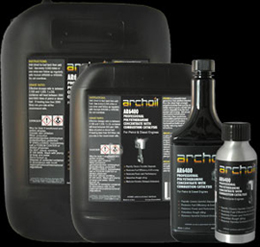I am regularly asked whether fuel additives can be added at a higher dose or added to less fuel to make a more potent concentrate and whether this is more beneficial.
The answer in most cases is no. This is because detergents, cetane improvers, dispersants, lubricants, etc., are designed to work with a specific amount of fuel. This ensures that any deposits are removed and dispersed in a controlled manner and aren’t purged through the system too quickly. It also reduces the risk of overloading the fuel with too much cetane improver or other functions that risk negating the benefits they set out to achieve.
For example, amine and Polyetheramine-based fuel cleaners work much better when used with the correct amount of fuel and gradually allow the chemistry to remove deposits in a controlled way. If you add a cleaner designed for sixty litres of fuel to ten litres of fuel, you run the risk of removing deposits too quickly and lose the benefit of the extended duration that sixty litres will provide.
Another reason for this is that fuel cleaners are designed to work with fuel flow where the actual act of removing deposits requires the fuel to be in motion. Deposits are removed layer by layer as the fuel moves through the system. The stronger the concentrate – and the less fuel that is treated – the lesser the amount of total motion that occurs. Amines dissolve and disperse deposits and prevent them from accumulating in the fuel system.
Therefore, do not be tempted to treat with a much higher concentration except when professionally instructed to do so and when, for example, a heavily-contaminated fuel injector requires urgent attention. In this instance, some cleaners can be safely added directly to the fuel rail or fuel filter. However, this procedure should be carried out by a professional and is not relevant to in-the-tank fuel cleaners.
Another question we are regularly asked is why some additives require a large amount of product, whereas others require such a small amount.
Higher-strength cleaners contain more chemistry and are designed to deliver the maximum amount of cleaning power and functions in a single bottle. Treat rates typically vary from 100:1 to 200:1. Regular use fuel conditioners are designed to deliver a modest amount of cleaning power and functions and are safe for continuous use. Treat rates vary from 500:1 to 10,000:1
Also, note that different chemistries work in different ways. High-strength cleaners, in particular, generally require a much larger volume of chemistry, pibsa, amine, polyetheramine, etc. Such cleaning power requires volume.
With a regular use 1,000:1 fuel conditioner, noticeable improvements might take a few tanks, whereas a higher strength single-tank cleaner will work within a single tank of fuel. The challenge is to deliver as many benefits as possible with the smallest amount of product.




 categories
categories